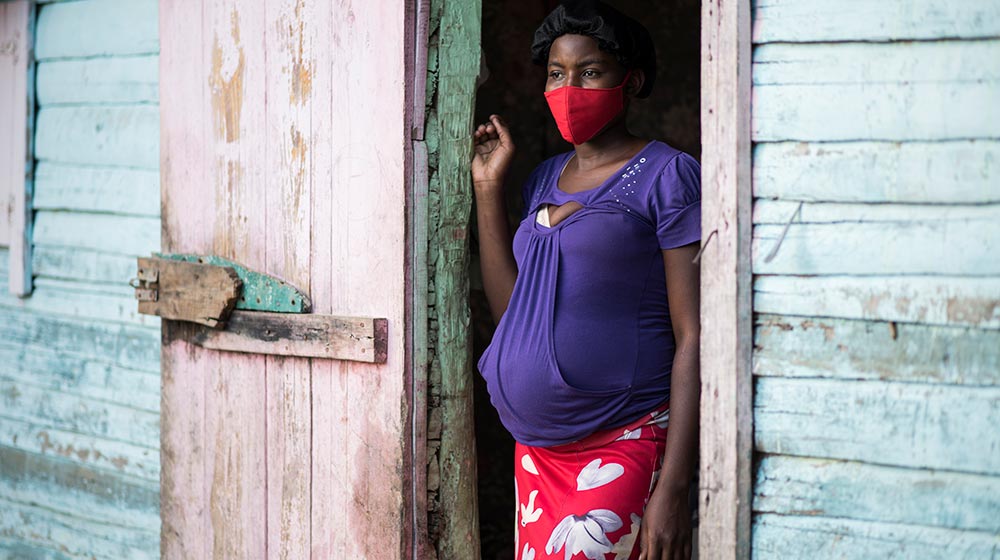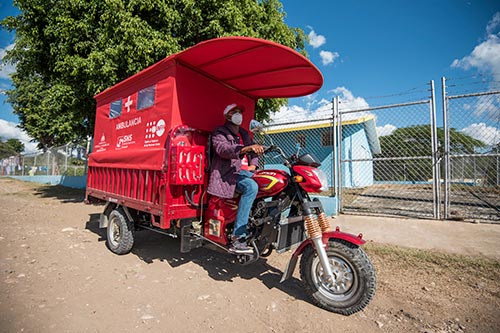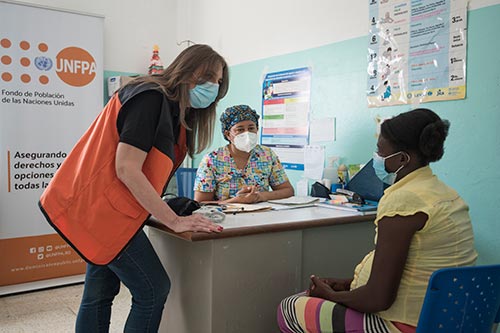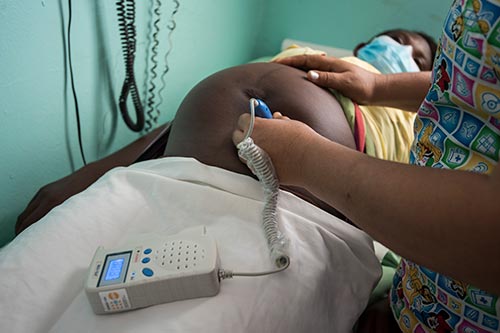Dominican Republic project champions safe motherhood amid COVID-19 pandemic

ELÍAS PIÑA, Dominican Republic – While Lucía’s husband is away planting peanuts, she feeds the children in their simple, clay-floored house. At 19 years old, she is already pregnant with her third child. The family struggles to get by on an income of less than three dollars per day.
And they are not alone. Some 83% of the residents in Elías Piña Province were impoverished as of 2013, according to the UN Development Program. Maternal mortality rates are also extremely concerning, with estimates as high as 114 maternal deaths per 100,000 live births. And now, the COVID-19 pandemic is taking a toll as well, deepening poverty and disrupting health services.

Yet despite these challenges, Lucia says she feels more prepared for childbirth, and better supported, than she did before.
She, like other pregnant women in the area, once traveled by foot along mountainous roads to reach the nearest health center. “To go to the hospital, I would walk out and have to sit down to rest because I got dizzy,” she explained.
But today, health services are much easier to access. She can simply catch a free ride on one of the new motorcycle ambulances made available by the Champion Mothers program.
Safe and healthy motherhood in the Dominican Republic
UNFPA and Dominican health providers launched the Champion Mothers program amid the COVID-19 pandemic.
“This project seeks to prevent and reduce maternal mortality. What we are executing here in six primary care units of Comendador and the Rosa Duarte provincial hospital is the strengthening of sexual and reproductive health services,” explained Dulce Chahín, a reproductive health officer with UNFPA. Comendador is the capital of Elías Piña and the site of the provincial hospital.

These services are sorely needed, said Dr. Cordero, who works at the primary care unit of Rinconcito, 10 km from Comendador. In the last few months of 2020, three pregnant women died because they were unable to access emergency care in time, she said.
Access to services is not the only problem. The area also faces inadequate medical equipment and a shortage of health providers.
Improving Infrastructure
The Champion Mothers initiative is working to address all of these issues. In addition to providing a fleet of six motorcycle ambulances, the program has also trained more than 100 health personnel and technicians. Futher, 10 primary care centers in Comendador municipality have been provided with new medical equipment.
Primary care units have also been equipped with mobile phones and tablets with unlimited data, enabling health workers to monitor the health of pregnant women. Patients can also connect with experts when questions or complications arise.
To address rising financial insecurity caused by the pandemic, Champion Mothers is delivering food packages to pregnant women to ensure they receive adequate nutrition. Women also receive mama kits containing diapers, sanitary pads, hand sanitizers, and face masks. In the Dominican Republic and around the world, safe motherhood doesn’t end with delivery. It ends when both mother and baby are healthy.
Confronting teen pregnancy

The project is also taking aim at another concern: persistently high rates of teen pregnancy. Teenage pregnancy can disrupt girls’ educations and increase their vulnerability to poverty and violence.
The project is supporting services for survivors of violence, and it is expanding access to family planning counseling and commodities. The primary care centers and local hospitals now dispense male and female condoms freely. UNFPA has established seventeen “key houses”; these are locations where community leaders, who have been trained in family planning counseling and providing non-judgmental sexual and reproductive health information, can provide condoms and other family planning services.
Such services will not only help prevent unintended pregnancies. “We are going to reduce sexually transmitted diseases,” said Elsa Fortuna, manager of Elías Piña’s Health Area 3.
A brighter path forward
As for Lucía, she was able to visit a primary health unit for one of her last prenatal care appointments. There, Dr. Barrientos measured her belly and assured her the pregnancy was going well.
Dr. Barrientos has also benefitted from the program. She recently attended the two training workshops – one on family planning and one on obstetric care.
“As a resident, I am happy to know that projects like this give a hand to the community,” she said.